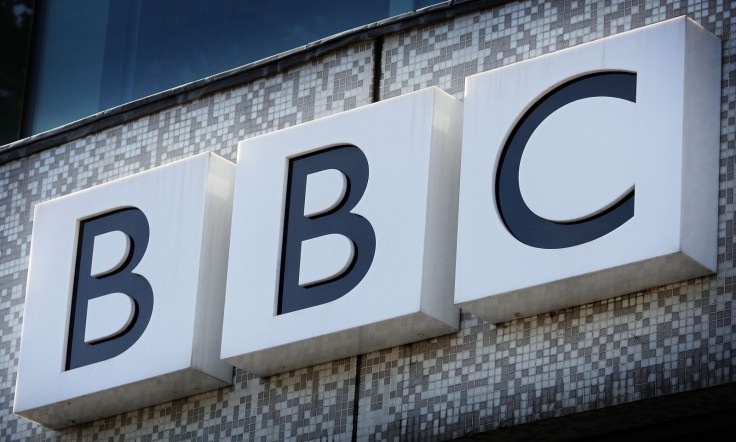I'm a feisty woman of colour. Perhaps that's why the BBC doesn't ask me on its key political shows
I wasn't asked on key BBC political programmes during Brexit and this year's election.

The BBC is an invaluable, incomparable national asset. Since 1922, the public service broadcaster has saved lives, liberated minds, sustained the hopeless and provided fantastic entertainment. In Uganda, my birthplace, we listened to BBC bulletins as faithfully and often as we prayed to God.
Sure, the corporation was devoutly nationalistic and, until the 1960s, part of the colonial propaganda machine. But programme makers were also subversive, free thinking and committed to internationalism. Its future is seriously imperilled by resolute free-market fundamentalists who despise the idea of public service broadcasting. This institution must be protected from these marauders. That's easier said than done. Even the most loyal of loyalists are now getting impatient with the way the institution is failing us and itself.
Today's revelation of top earning BBC stars rouses yet more despair.
Over the last fortnight, I have inveighed against the corporation at meetings, in the bathroom, kitchen and dinner tables. At an Ofcom consultation on diversity at the Beeb, the mood was dark, the anger palpable. Around 20 stakeholders were present as well as Sharon White, the Ofcom chief executive, herself a young, exceptionally able black woman.
The BBC is duty bound to "accurately and authentically represent and portray the lives of the people of the United Kingdom today, and raise awareness of the different cultures and alternative viewpoints that make up its society. It should ensure that it provides output and services that meet the needs of the United Kingdom's nations, regions and communities".
Does it do this? Well a bit. A bit is not good enough. There has been progress, but too little, too slow and grudging. Top guys masterfully use smooth words to cover up inaction.
Informed participants questioned the veracity or accuracy of the BBC stats provided by a hapless representative. Age, gender, disability, religious, race and class discrimination still remain embedded in the culture. There is no discount in the license fee for these groups who feel ill served by the national broadcaster.
One Asian attendee asked me why I hadn't been on any of the key BBC political programmes over Brexit and the election. "Dunno," I replied. I won broadsheet columnist of the year in the National Press Awards for my political insights, but was still not good enough for Newsnight or all those Andrew Neil shows or Marr.
Interestingly, the talented Mr. Peter Oborne of the Daily Mail, who won tabloid columnist of the year, was in and out of studios over those crucial periods. So why? Is it cos I'm a feisty woman of colour who doesn't know her place? Sky News, in comparison did and does invite me in to discuss serious national issues. Many black and Asian commentators make the same complaints. Here the personal becomes intensely political.
This Tuesday Sir Lenny Henry made a eviscerating speech at an event in parliament accusing both the BBC and Ofcom of "fake diversity". They use black and Asian presenters to pretend it's all "peachy and dandy, even if the creators who make the content are completely un-diverse".
That very same day, the irascible John Humphreys rudely quizzed Wimbledon semi-finalist Johanna Konta on whether she was really British. It took me back many years to when Norman Tebbit dismissed my right to be British on this same programme. Sarah Sands is newly-installed as editor of Today (and was editor of the Evening Standard, which ran a racist campaign against Sadiq Khan during the mayoral elections). Did she discipline Humphreys? Or did she think, 'That's just our John'?
There's more. The BBC turns a blind eye to an exodus of journalists going to work for the Conservatives or for the civil service under a Tory government.
Robbie Gibb, the head of the BBC's political team at Westminster, has left to become Theresa May's communications director. Thea Rogers, a former BBC political producer previously of the same parish, for a time became an adviser to George Osborne. Craig Oliver (now knighted), a former high-flying BBC executive, joined Cameron's team as director of communications. BBC journalists Guto Harri and later Will Walden propped up Mayor Boris Johnson. In the late 1990s, Lance Price of the BBC became Blair's special adviser, but most such neat moves are to the Tory party. By now the BBC should have established rules on these revolving doors. It hasn't. Though it should be noted it has welcomed into its bosom former Labour ministers such as James Purnell.
And so to the information just released of the big earners. It is a requirement in the new charter. These figures were never before made public understandable reasons - commercial companies are always prowling and waiting to lure the best talent. The best paid are mostly men. Claudia Winkleman and Clare Balding are doing very well thank you but not as well as John Humphreys who gets over £600,000. Of the 96 named as earning over £150,000-a-year, only 12 are of Black, Asian and Minority Ethnic (BAME) backgrounds, according to research by International Business Times journalists. Management pay is also over-high. Much internal and external trouble will surely follow.
We who love the BBC are steadfast but not blind. Much is at stake. If Tony Hall - a good man - and his team don't step up and do the right things, there will be no BBC in a decade. And it will be their fault.
© Copyright IBTimes 2025. All rights reserved.






















